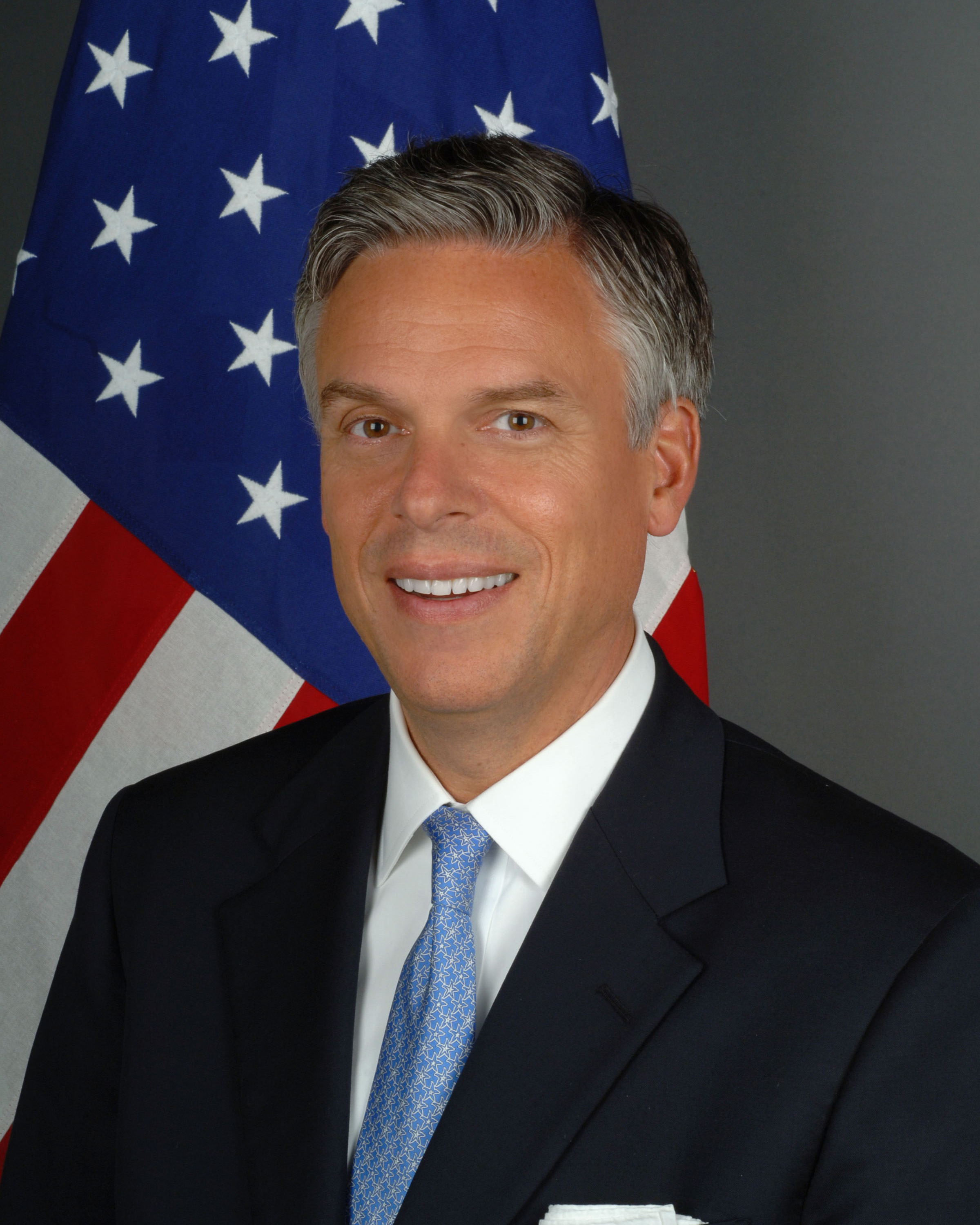 Image via Wikipedia Image via Wikipedia |
| Ambassador Jon Huntsman, official portrait |
Most conservatives consider Obama a poor leader, if a leader at all. His own staff member said his strategy is to “lead from behind.” That’s leadership? No, that’s why we have confused policies on Afghanistan, Libya, energy, the budget, and many other things.
Also, the policies Mr. Obama has supported have made our country worse, not better. So Republicans have every right and even obligation to criticize the president sternly and often over his policies, and to emphasize the contrast between their views and his.
Civility
“Civility” means that Republicans are supposed to politely accept what the White House and congressional Democrats are selling. Maybe a few questions would be allowed if they are sufficiently deferential. If nominated, Mr. Huntsman would basically be the second coming of John McCain, and would get about as far in the general election as McCain did.
Conservatives who actually want a conservative president would be well advised to support someone who articulates a conservative viewpoint and is willing to boldly criticize the president and his administration. There are so many areas where this is needed, it might be impossible to get to them all in during the campaign, but there should be a focus on some of the main issues: spending, defense, the free market, low taxes, and the number one item: jobs.
Cap and Trade
Mr. Huntsman has enthusiastically supported cap and trade. Not so much today:
Republican White House hopeful Jon Huntsman has found a way to explain his embrace of cap-and-trade when he was governor of Utah: Everyone was doing it. [1]
Huntsman seems to think that the economy won’t allow that approach at this time, but it seems clear that he has no fundamental philosophical problem with it.
The Economy
Another concern about Huntsman: He was apparently right in step with Administration economic policy while serving as Ambassador to China, according to David Axelrod, Obama’s chief advisor:
A senior strategist to the president's reelection campaign, Axelrod said in an interview aired Sunday on CNN's “State of the Union” that Huntsman's recent criticism of Obama's “failed” economic policy is “in conflict with what he communicated to us in 2009.” [2]
Health Care
“He was encouraging on health care. He was encouraging on the whole range of issues,” Axelrod said. [3]
Etc.
Steve Benen at a Washington Monthly political blog summarizes Huntsman the candidate thusly:
So, what are we left with? A Republican presidential candidate who believes health care is a right, supported an individual health care mandate, wanted a bigger stimulus in 2009 with fewer tax cuts, expressed support for the Affordable Care Act, wanted to combat climate change with either a carbon tax or a cap-and-trade system, and has endorsed civil unions, TARP, and a pathway to citizenship for immigrants who entered the country illegally. [4]
Oh, and Jimmy Carter likes him. What more could he want?
Huntsman resists being called a “conservative” (actually, for good reason), preferring instead to be thought of as a pragmatic problem-solver. But if pragmatism is really his core philosophy, that leaves much to be desired in terms of principle. It indicates more opportunism than principled leadership. Huntsman is simply in the wrong party. If conservatives support him, there remains little reason why the GOP and the Democratic Party don’t just merge into one big socialist entity.
Fortunately, the GOP has several good candidates that are not in the RINO category.
[1] Ben Geman, “Huntsman on past cap-and-trade support: Everyone was doing it,” 06/22/2011, The Hill.
[2] Andy Barr, “Axelrod: Huntsman’s views on economy changed,” 06/19/2011, Politico.
[3] Ibid.
[4] Steve Benen, “Calling Out a RINO,” 05/26/2011, Washington Monthly.


